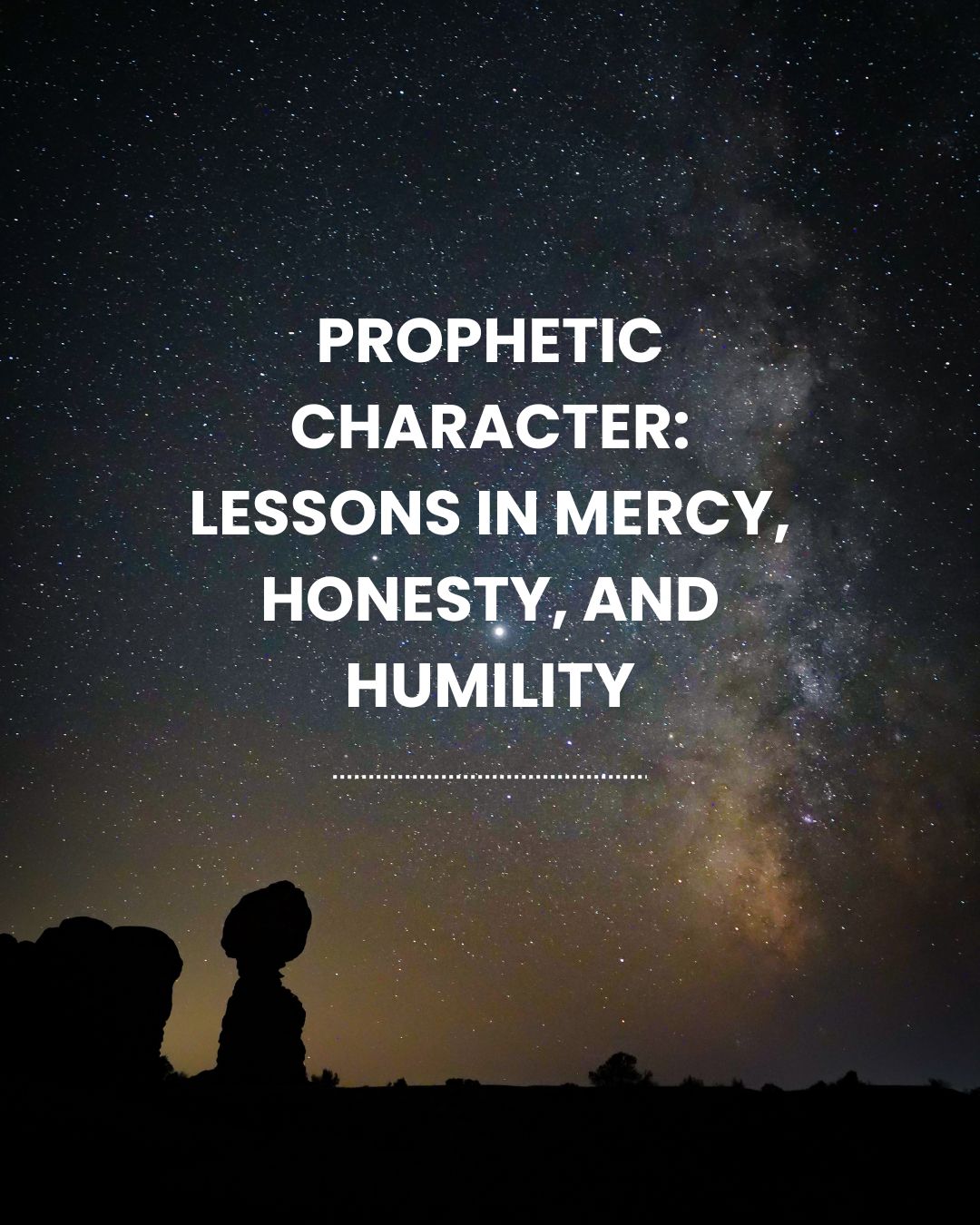Prophetic Character: Lessons in Mercy, Honesty, and Humility
The Prophet Muhammad ﷺ is regarded not only as the final messenger of Islam but also as the best example of human character. The Qur’an affirms this in Surah Al-Qalam (68:4): “And indeed, you are of a great moral character.” His life offers countless lessons in compassion, truthfulness, and humility—values that are timeless and deeply needed in today’s world.
Mercy: The Foundation of the Prophetic Mission
One of the most defining traits of Prophet Muhammad ﷺ was his mercy. Allah describes him in the Qur’an (21:107): “And We have not sent you, [O Muhammad], except as a mercy to the worlds.” This mercy extended not only to his companions and followers but also to his enemies, animals, and the environment.
A powerful example of his mercy is the story of Ta’if. When the people of Ta’if rejected him and pelted him with stones, the Prophet ﷺ had the opportunity to retaliate. Yet, he chose forgiveness, praying that their descendants might one day accept Islam. Such restraint and compassion reveal the depth of his merciful nature.
In our daily lives, this teaches us to respond with kindness, even when faced with hostility. Whether in our families, communities, or workplaces, embodying prophetic mercy can transform hearts and relationships.
Honesty: The Mark of a True Believer
Before receiving revelation, Prophet Muhammad ﷺ was known as Al-Ameen (the Trustworthy) by the people of Makkah.This unwavering commitment to truth laid the foundation for his success as a leader and reformer.
One notable incident is when the Prophet ﷺ warned the Quraysh by saying, “If I were to tell you that an army is coming over the hill to attack you, would you believe me?” They replied, “Yes, we have never known you to lie.” His credibility made his message impactful, even among skeptics.
Today, honesty is often compromised for personal gain or convenience. But the Prophet’s life reminds us that truthfulness builds trust, credibility, and integrity—qualities that are essential in both personal and professional spheres.
Humility: Greatness Without Pride
Despite being the most honored of creation, Prophet Muhammad ﷺ lived a life of simplicity and humility. He mended his own clothes, sat with the poor, and never considered himself superior to others. His humility wasn’t an act—it was a reflection of his inner purity and deep awareness of his role as a servant of Allah.
When entering Makkah in victory after years of persecution, the Prophet ﷺ did not boast. Instead, he bowed his head in gratitude, riding humbly on a camel. He forgave his former enemies, declaring, “No blame will be upon you today.”
This level of humility in victory is rare. In a world that often glorifies ego and power, the Prophet’s example teaches us the strength found in humility. Whether we are students, professionals, or leaders, staying grounded and grateful is key to true success.
Applying the Prophetic Character Today
The character of Prophet Muhammad ﷺ is not just for admiration—it is for implementation. By practicing mercy in our interactions, honesty in our dealings, and humility in our conduct, we can reflect the prophetic legacy in our daily lives.
In a time where ethical values are increasingly challenged, returning to the life and character of the Prophet ﷺ offers a moral compass. He is, as described in the Qur’an (33:21): “Indeed, in the Messenger of Allah you have a good example to follow.”
Conclusion
The life of the Prophet Muhammad ﷺ is a living guide for anyone seeking to live with purpose and integrity. His mercy inspires compassion, his honesty fosters trust, and his humility teaches us to lead without arrogance. In following his example, we don’t just become better Muslims—we become better human beings.


Leave A Comment